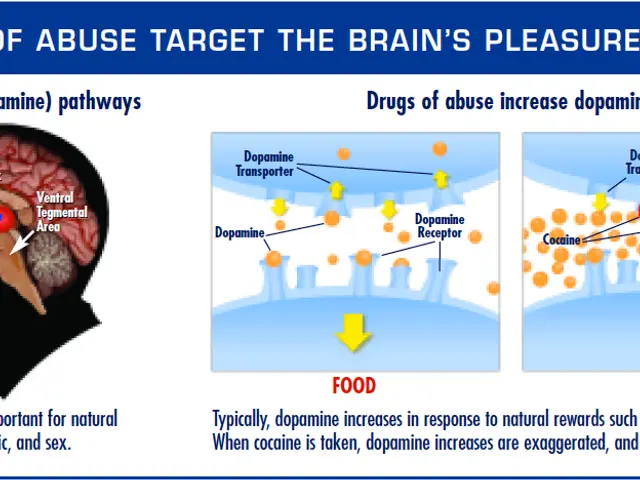Brain Stress Management: From Ashwagandha to Rhodiola - Exploring Adaptogens' Role
In the hustle and bustle of modern life, chronic stress has become a common affliction. This stress, however, takes a toll on our bodies, particularly our brains, affecting cognitive function, sleep patterns, and even causing inflammation. Fortunately, a group of natural compounds known as adaptogens are gaining attention for their ability to help the body adapt to stress, promoting balance in stress response systems and supporting brain health.
Adaptogens, such as Ashwagandha, Holy Basil, Rhodiola, Schisandra, and Eleuthero, work by modulating the body's stress response, keeping cortisol and neurotransmitter levels balanced. This balance prevents the harmful effects of chronic stress, including fatigue, anxiety, immune suppression, and even brain changes linked to anxiety and depression.
Beyond cortisol regulation, adaptogens offer a host of other benefits. They influence neurotransmitters like serotonin, dopamine, and norepinephrine, improving mood, cognitive function, and emotional stability. They protect brain cells from oxidative stress and support immune function through bioactive compounds like flavonoids and polysaccharides. Furthermore, they improve cerebral blood flow and brain cell signalling, aiding cognitive resilience under stress.
Because stress can cause long-term detrimental changes in brain structure, adaptogens can intervene to protect neural networks and maintain brain function. For instance, Lion's Mane, Ashwagandha, Rhodiola, and Bacopa Monnieri offer combined benefits for both stress management and cognitive enhancement, making them particularly effective for comprehensive brain health.
Individuals experiencing chronic stress, fatigue, or frequent illness, those having trouble sleeping due to an overactive mind, people who need emotional stability and resilience under pressure, and anyone wanting to protect brain health from stress-induced damage can benefit from adaptogens.
Some adaptogens, like Ashwagandha, are widely studied and have been used for over 3,000 years in Ayurvedic medicine to reduce stress and improve energy. Rhodiola, on the other hand, is well-researched and known for its energizing effects and ability to enhance mental performance under stress. Schisandra supports the central nervous system and is traditionally used to boost vitality and concentration.
Adaptogens are versatile and can be combined in nootropic stacks for various benefits. For example, Rhodiola combined with L-Theanine balances energy and calmness, while Ashwagandha and Bacopa Monnieri are great for memory, emotional balance, and reducing mental fatigue. Holy Basil and Lion's Mane combine mood support with neurogenesis-promoting benefits.
Using adaptogens effectively involves choosing the right adaptogen for your needs, using them consistently but cycling occasionally, starting low and monitoring, and combining them with lifestyle strategies such as getting 7-9 hours of sleep each night, practicing mindfulness or deep breathing exercises, engaging in regular physical movement, and maintaining a nutrient-rich, anti-inflammatory diet.
In conclusion, adaptogens offer a natural, sustainable way to support the brain through the ups and downs of modern life. By modulating the body's stress response, adaptogens help maintain mental clarity, emotional stability, and long-term brain resilience in the face of daily stressors. A balanced brain starts with balance within, and adaptogens are an excellent ally in achieving that balance.
Adaptogens, such as Ashwagandha, Holy Basil, Rhodiola, Schisandra, and Eleuthero, aid mental health by modulating the body's stress response, balancing cortisol and neurotransmitter levels, and offering additional benefits like influencing serotonin, dopamine, and norepinephrine to improve mood and cognitive function. These natural supplements can support overall health-and-wellness by promoting balance in stress response systems and protecting brain cells from oxidative stress.







